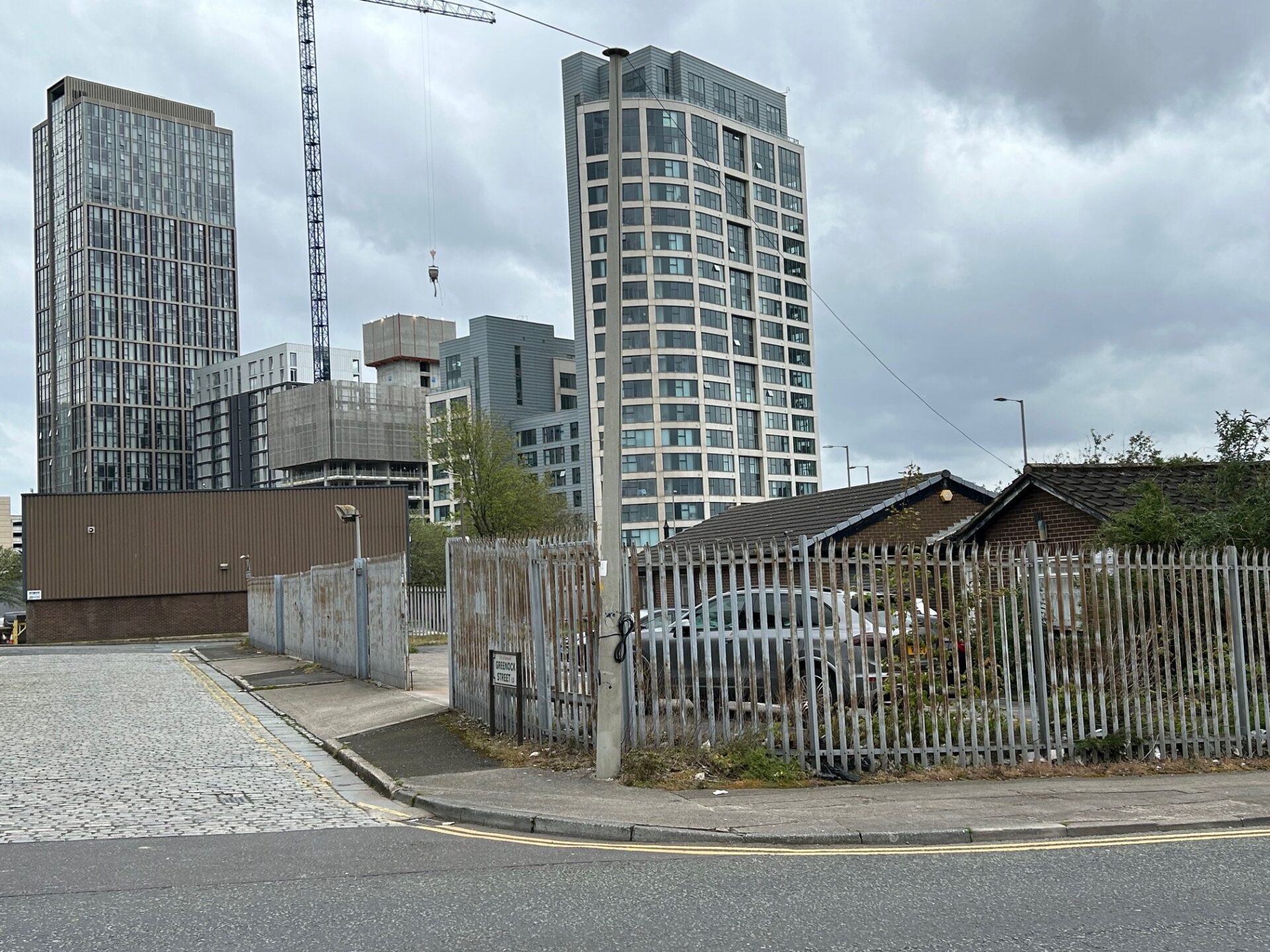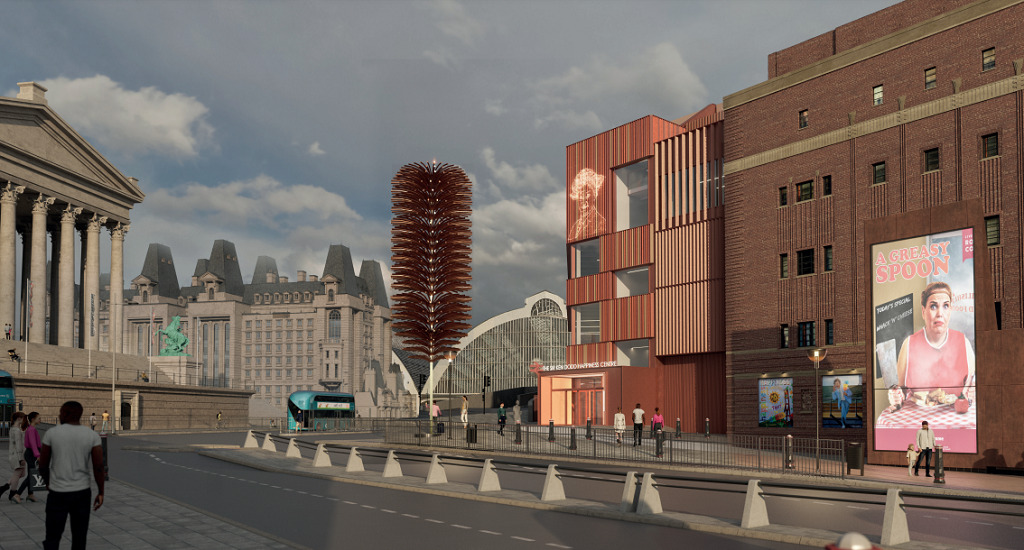NW in 2019 | Building a world-class city
Liverpool has been on a journey and undergone a dramatic transformation in the last decade, writes Claire Slinger of Liverpool City Council. The city has made significant progress coming out of the last recession but growth on its own is not enough, it must be sustainable for the years to come.
In March 2018, the Council launched its Inclusive Growth Plan to prioritise sustainable economic growth, meet the needs of the city of Liverpool and address challenges which are barriers to progress.
The Inclusive Growth Plan has a vision which is about making Liverpool one of the best cities in the world; a strong and growing city built on fairness.
Maintaining sustainable economic growth is about getting the balance right – and that is not just about delivery of regeneration and development projects, it is about creating and maintaining a balanced economy in Liverpool which will weather economic storms (cue Brexit) and tackle some of the hard-hitting problems which we experience daily in our city – homelessness, poverty, mental health illness and budget cuts.
Despite fiscal austerity, we have the tools and capacity to continue to deliver sustainable growth and the Council has a huge influence on the business environment. Growth needs to be harnessed with collaboration between the public and private sector and diversification across a wide range of sectors to underpin a resilient economy. Laying the right foundations for growth is paramount.
The Council’s Inclusive Growth Plan has six aims – investing in our children and young people; people who live well age well; quality homes in thriving neighbourhoods; a strong inclusive economy; a connected and accessible city and to make Liverpool the most exciting city in the UK.
Set in an economic environment with interconnecting challenges, each challenge impacts on others so they can’t be tackled in isolation. The public and private sector are the driving forces behind sustainable economic growth, but we will only transform the city by investing our time, energy and resources together on priorities, taking a commercially minded approach.
We must be bold, committed and focussed, increasing outputs by prioritising work on key sectors and transformational opportunities. By focussing on early interaction and outcomes, we can target commercial investment and economic opportunities which will promote Liverpool to investors and encourage partners to work collaboratively. If we harness the strength of collaboration and partnership with resilience, then we can continue to deliver our growth strategy with enterprising and commercial outcomes.
The Council has a vital role to play in working with partners to deliver economic growth and ensure Liverpool is the best place to do business and invest. Strengthening partnership working, investing in property and business growth will allow the Council to further invest in its services and balance its portfolio.
Liverpool has all the components to be a world class city. In 2019, with the right mix of development, regeneration, placemaking, institutional and inward investment we can deliver in breadth; a ‘whole city’ inclusive growth approach. For the Council, each project, priority, action and decision will have the aims and vision of the Inclusive Growth Plan at its core.
- Claire Slinger is assistant director of investment & development at Liverpool City Council





Well said Claire.
By Clark H
Brilliant piece of writing. Unfortunately the reality of strikes on the railways and Cammell Lairds , backed by local politicians does nothing to support the future prosperity of the City Region. Banners at our football grounds supporting strikes, beamed out across the world, discredit the “new” Liverpool image. Similarly failed property investment schemes show lack of prudence by the Council. Liverpool has all the potential outlined by Claire, but politicians are the weak link
By Forward Thinker
It would help if the Council looked again at some of its silly ideas that will kill traffic flows around key routes such as the Strand, and also show more determination to stem the flow of speculative developers building low quality stock in prime sites across the city. The people are the key strength of the city, and the politicians its weakest link – has been the case for many years, and a change of leadership at LCC may help.
By John Smith
Liverpool could be one of the most beautiful, interesting and popular cities in Britain, but unfortunately it continues to be blighted by unacceptable levels of antisocial behaviour, best exemplified by the huge amounts of graffiti, litter and casual vandalism in and around the city centre. Unless and until the city acknowledges and gets to grips with these problems, it will fail to fulfil its potential and will haemorrhage jobs and investment elsewhere.
By Moomo
Some of these comments are clearly written by the ‘put-down-Liverpool brigade’ in disguise as usual. Well it don’t wash! Graffiti and litter are an issue at whatever level of course but much less so in Liverpool than in many of our competitor cities! You only have to look at the quality of our waterfront and Liverpool One to see the very high standards now prevailing across much of our city centre. Derelict sites have reduced massively across the city centre in recent years and we are finally banishing most of the grot spots.
The Liverpool tourism economy is going from strength to strength each year. Even Telegraph readers put us in the top 10 UK visitor destinations a few days ago along with Edinburgh and London, none of the other large English cities featured in the ratings! We are now fourth for international visitors and that is growing each year!
By Roscoe
Well said Rosco traveled to Manchester last week i was completely shocked with the amount of littler , dirt and graffiti they could learn a lot from Liverpool.
By Matt
Roscoe and Matt misunderstand me. Liverpool is a brilliant city; it has a finer setting, more magnificent architecture and a more likeable character than any other of England’s major provincial cities. Unlike Birmingham, Manchester and Leeds, however, it isn’t one of Britain’s premier commercial centres, and it will never benefit from gigantic government handouts, irrespective of which party is holding power. Birmingham Manchester and Leeds will never be beautiful, but they can afford to show the world an ugly face because their future is as a centre for big business. But if Liverpool is to succeed it will need to do so by persuading people that it is a fantastic place in which to live, work and invest. I genuinely believe it can do this – and is starting to succeed in so far as attracting younger graduates is concerned – but if it wants to attract people of all ages and classes it will need to put a stop to the petty criminality for which it has gained an unenviable (and probably undeserved) reputation. The moronic antics of “Jas”, “Gizit”, “Siol”, “Jengr” and other juvenile narcissists is costing Liverpool dearly. The city should put a stop to it.
By Moomo
^What a bizarre comment. The fact that an annoying gang of youths like to ‘tag’ buildings in the city centre has nothing to do with Liverpool’s success as a city and in attracting people. Because, as pointed out before, most competitor cities have worse tagging and petty crime problems in their centres than Liverpool, including those like Manchester and Leeds that for whatever reasons have stronger business economies in their city centres and as a result can offer more graduate-level jobs in those leaving their universities.
Like any other city in Britain there is crime in Liverpool but it remains, as it has been for decades, one of the UK’s safest large cities. More ludicrous is the suggestion that the activities of a few taggers, even though other cities have more of them, has given Liverpool a ‘reputation’ for petty crime. Who in the rest of the country is even aware of the fact that Jaz and the boys are tagging buildings in Liverpool? If they did know about it, presumably because they had visited, they’d be aware that every other city in the UK they’ve visited has the same and in fact, because that US-inspired hip hop culture hasn’t really taken off ever in Liverpool compared to say London or Bristol, we have a lot less. Anyone who associates low-crime-rate Liverpool with crime are instead those still stuck in decades old stereotypes that as far as I can work out have their roots in Tom O’Connor and other ‘scouse comedians’ telling jokes about dockers robbing from ships cargoes and so on on Saturday night tv back in the 1970s.
By Anonymous